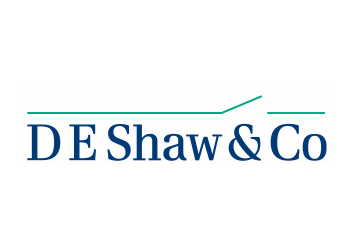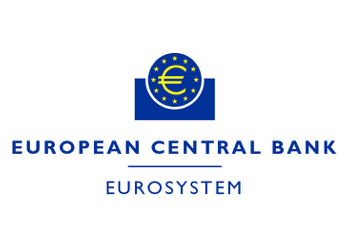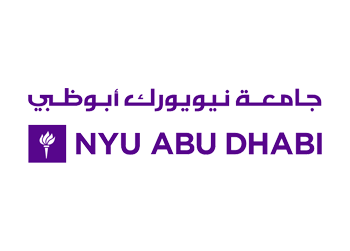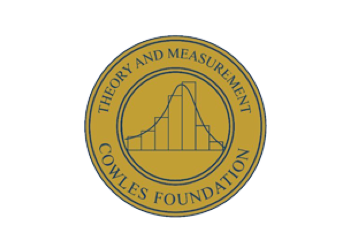| Presenter(s) | Type | Length | Chair | Room Number | Add to calendar | ||
|---|---|---|---|---|---|---|---|
| Alberto Bisin | Lunch Sessions, Panel & Workshop | 30/08 | 09:00 CEST | mins |
Zaal Tokyo (M1-17)
|
Add to Calendar
2024-08-30 09:00:00
2025-04-05 14:16:54
EEA-ESEM 2024: Hotelling Lectures in Economic Theory. Room: Zaal Tokyo (M1-17)
In these lectures we shall aim at building models of long-run socio-economic growth which are well-founded on the political economy of cultural and institutional evolution. As Vilfredo Pareto’s circulation of the elites, relevant long-run socio-economic outcomes are modeled as the result of the relative political power of different elites jointly evolving over time with their own and civic society’s relevant cultural traits. To this end, we shall first study models of the evolution of culture and of institutions per se. These models shall be then fruitfully embedded in a formal analysis of long-run socio-economic growth, which includes economic growth but also e.g., the dynamics of democratic political participation, of various dimensions of inequality, ethnic fractionalization, and other relevant societal characteristics. These models shall be built with an eye at providing informal and formal guidance and support to the wealth of empirical studies in Historical Economics which identify the causal determinants of long-run socio-economic growth by exploiting the persistence of the cultural traits of elites and civic society as well as the persistence of societal institutional characteristics. The titles of the three distinct lectures are the following:9:00-10:30 Lecture 1: Cultural dynamics11-12:30Lecture 2: Institutional dynamicsLUNCH: 12:30-13:3013:45 - 15:15Lecture 3: Political economy theories of long-run socio-economic growthLunch is included for participants of the Hotelling Lectures
In these lectures we shall aim at building models of long-run socio-economic growth which are well-founded on the political economy of cultural and institutional evolution. As Vilfredo Pareto’s circulation of the elites, relevant long-run socio-economic outcomes are modeled as the result of the relative political power of different elites jointly evolving over time with their own and civic society’s relevant cultural traits. To this end, we shall first study models of the evolution of culture and of institutions per se. These models shall be then fruitfully embedded in a formal analysis of long-run socio-economic growth, which includes economic growth but also e.g., the dynamics of democratic political participation, of various dimensions of inequality, ethnic fractionalization, and other relevant societal characteristics. These models shall be built with an eye at providing informal and formal guidance and support to the wealth of empirical studies in Historical Economics which identify the causal determinants of long-run socio-economic growth by exploiting the persistence of the cultural traits of elites and civic society as well as the persistence of societal institutional characteristics. The titles of the three distinct lectures are the following:9:00-10:30 Lecture 1: Cultural dynamics11-12:30Lecture 2: Institutional dynamicsLUNCH: 12:30-13:3013:45 - 15:15Lecture 3: Political economy theories of long-run socio-economic growthLunch is included for participants of the Hotelling Lectures
EEA-ESEM 2024
congress@eeassoc.org
Europe/Rome
public
|
| Presenter(s) | Alberto Bisin |
| Type | Lunch Sessions, Panel & Workshop |
| Date | 30/08 |
| Time | 09:00 CEST |
| Length | mins |
| Chair | |
| Room Number |
Zaal Tokyo (M1-17)
|
| Add to calendar |
Add to Calendar
2024-08-30 09:00:00
2025-04-05 14:16:54
EEA-ESEM 2024: Hotelling Lectures in Economic Theory. Room: Zaal Tokyo (M1-17)
In these lectures we shall aim at building models of long-run socio-economic growth which are well-founded on the political economy of cultural and institutional evolution. As Vilfredo Pareto’s circulation of the elites, relevant long-run socio-economic outcomes are modeled as the result of the relative political power of different elites jointly evolving over time with their own and civic society’s relevant cultural traits. To this end, we shall first study models of the evolution of culture and of institutions per se. These models shall be then fruitfully embedded in a formal analysis of long-run socio-economic growth, which includes economic growth but also e.g., the dynamics of democratic political participation, of various dimensions of inequality, ethnic fractionalization, and other relevant societal characteristics. These models shall be built with an eye at providing informal and formal guidance and support to the wealth of empirical studies in Historical Economics which identify the causal determinants of long-run socio-economic growth by exploiting the persistence of the cultural traits of elites and civic society as well as the persistence of societal institutional characteristics. The titles of the three distinct lectures are the following:9:00-10:30 Lecture 1: Cultural dynamics11-12:30Lecture 2: Institutional dynamicsLUNCH: 12:30-13:3013:45 - 15:15Lecture 3: Political economy theories of long-run socio-economic growthLunch is included for participants of the Hotelling Lectures
In these lectures we shall aim at building models of long-run socio-economic growth which are well-founded on the political economy of cultural and institutional evolution. As Vilfredo Pareto’s circulation of the elites, relevant long-run socio-economic outcomes are modeled as the result of the relative political power of different elites jointly evolving over time with their own and civic society’s relevant cultural traits. To this end, we shall first study models of the evolution of culture and of institutions per se. These models shall be then fruitfully embedded in a formal analysis of long-run socio-economic growth, which includes economic growth but also e.g., the dynamics of democratic political participation, of various dimensions of inequality, ethnic fractionalization, and other relevant societal characteristics. These models shall be built with an eye at providing informal and formal guidance and support to the wealth of empirical studies in Historical Economics which identify the causal determinants of long-run socio-economic growth by exploiting the persistence of the cultural traits of elites and civic society as well as the persistence of societal institutional characteristics. The titles of the three distinct lectures are the following:9:00-10:30 Lecture 1: Cultural dynamics11-12:30Lecture 2: Institutional dynamicsLUNCH: 12:30-13:3013:45 - 15:15Lecture 3: Political economy theories of long-run socio-economic growthLunch is included for participants of the Hotelling Lectures
EEA-ESEM 2024
congress@eeassoc.org
Europe/Rome
public
|
In these lectures we shall aim at building models of long-run socio-economic growth which are well-founded on the political economy of cultural and institutional evolution. As Vilfredo Pareto’s circulation of the elites, relevant long-run socio-economic outcomes are modeled as the result of the relative political power of different elites jointly evolving over time with their own and civic society’s relevant cultural traits.
To this end, we shall first study models of the evolution of culture and of institutions per se. These models shall be then fruitfully embedded in a formal analysis of long-run socio-economic growth, which includes economic growth but also e.g., the dynamics of democratic political participation, of various dimensions of inequality, ethnic fractionalization, and other relevant societal characteristics.
These models shall be built with an eye at providing informal and formal guidance and support to the wealth of empirical studies in Historical Economics which identify the causal determinants of long-run socio-economic growth by exploiting the persistence of the cultural traits of elites and civic society as well as the persistence of societal institutional characteristics.
The titles of the three distinct lectures are the following:
9:00-10:30
Lecture 1: Cultural dynamics
11-12:30
Lecture 2: Institutional dynamics
LUNCH: 12:30-13:30
13:45 - 15:15
Lecture 3: Political economy theories of long-run socio-economic growth
Lunch is included for participants of the Hotelling Lectures





